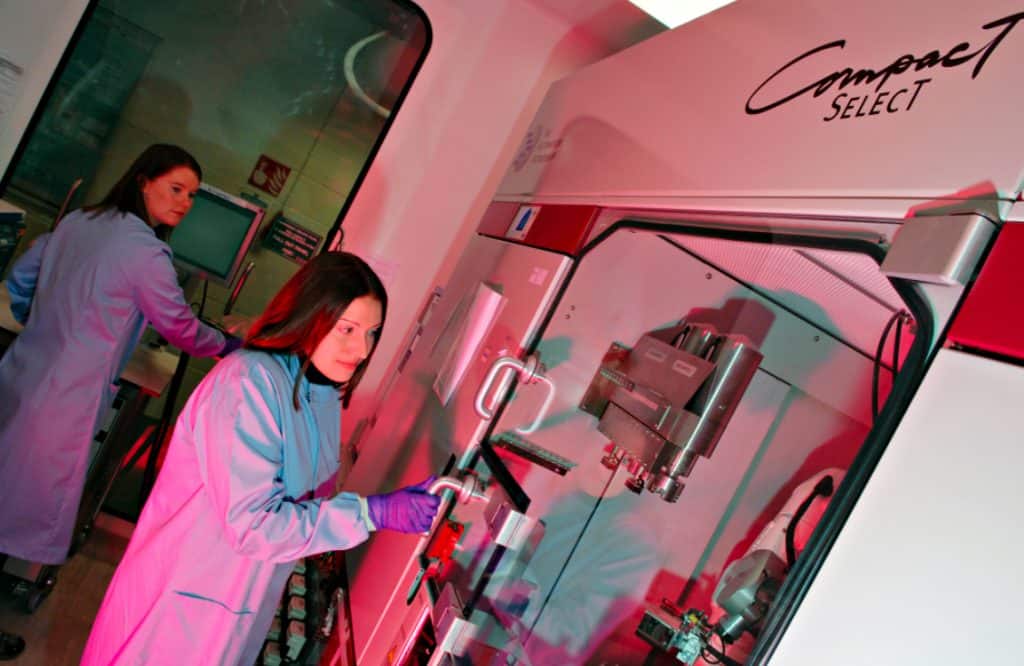
New regenerative medicine manufacturing centre to be established in UK
pharmafile | January 11, 2010 | News story | Manufacturing and Production | Loughborough, regenerative medicine
A new specialist centre for manufacturing in regenerative medicine is to be set up in the UK with government funding.
Regenerative medicine promises to help repair or even replace damaged organs using techniques such as stem cell therapy.
Trials of stem cell therapy in patients with eye diseases are already producing positive results, but stem cells and the wider regenerative medicine field has a long way to go before it can fulfil its promise.
UK laws on using embryos and other human cells have helped put the country’s academic researchers at the forefront of the field, but the need for more regulatory and scientific guidance, as well as scarce funding, has held progress back in recent years.
The new Centre for Innovative Manufacturing in Regenerative Medicine at Loughborough University aims to address these problems, and pool expertise from academic, pharma and biotech research.
Professor David Williams, who will lead the EPSRC Centre, explains: “Without doubt, regenerative medicine (RM) has massive potential – especially for tackling chronic, debilitating conditions like heart disease and arthritis that will become increasingly prevalent due to our ageing population.
“Yet it’s not enough simply to come up with clever ideas for curing such conditions. It’s about translating ideas into safe, affordable, cost-effective treatments that combine life-changing impact for patients with maximum commercial value.”
Loughborough University’s partners on the project will be the University of Nottingham and Keele University. The centre will be funded with a government grant of £5.3 million over a five-year period, with a further £3 million provided by a total of 28 partners from industry and the public sector.
A key priority will be to pinpoint “commercially robust practices and processes” that can be used in key areas to help turn the scientific theory into practical reality. These areas include product innovation/development, quality control and good manufacturing practice.
Prof Williams says tackling these issues will help the UK sector to secure a major share of the growing RM market and become a long-term leader in the field.
Overcoming adoption barriers to regenerative medicine products
Once new RM products are developed, getting them adopted by the UK healthcare sector is another important hurdle, and the centre plans to undertake what it calls “authoritative studies designed to influence healthcare policy”.
Other studies will identify ways of eliminating bottlenecks that currently hamper the translation of research ideas into final products suited to clinical use.
The collaborators hope to quickly contribute to improved product development and better manufacturing processes, but genuine clinical advances for patients arising from the project are likely to be 10 years away.
“Ultimately, the key to the success of the UK’s RM industry will be its ability to address the right problem at the right time in the right way,” says Professor Williams. “Our EPSRC Centre will provide the capacity and the specialised expertise necessary to make this possible – and to enable the industry to build on its successes to date and fulfil its significant potential.”
A number of pharmaceutical and biotech companies are already involved in regenerative medicines research in the UK.
AstraZeneca’s Charnwood R&D site is in Loughborough, and works closely with the university and others on research in regenerative medicine.
Meanwhile Pfizer established its own research facility dedicated to RM in nearby Cambridge in 2008.
Related Content

San Francisco scientists use CRISPR to develop stem cells invisible to the immune system
Scientists at UC San Francisco have used the gene editing tool CRISPR Cas9 to manufacture …
Stem cell breakthrough heralded by scientists
Researchers have discovered a simple method of producing mice stem cells that could mark a …

World’s first stem cell drug approved in Canada
Canada has approved the world’s first stem cell drug, marking an historic day for the …








